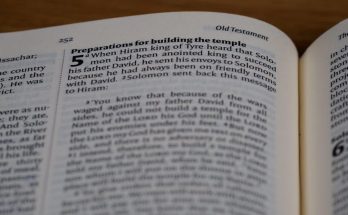Heraclitus Fragments PDF: An Overview
Heraclitus’s surviving thoughts, often called fragments, offer a glimpse into his profound philosophy. These fragments, compiled and translated, are readily available in PDF format. Several scholars have attempted to translate the fragments into English, providing interpretations for contemporary readers. Studying them allows us to explore his ideas of constant change.
Available Translations of Heraclitus’ Fragments
Numerous translations of Heraclitus’ fragments are available, each offering a unique perspective on his cryptic pronouncements. English translations, in particular, are widely accessible, catering to both academic scholars and casual readers. Some translations prioritize literal accuracy, aiming to preserve the original Greek wording as closely as possible. Bywater’s work, focusing on complete edition, offers insight to the source. Others take a more creative approach, seeking to capture the spirit and essence of Heraclitus’ thought in contemporary language, retaining scholarly exploration. Haxton presents fragments with the Greek originals in view. Wheelwright’s translation is available as a free ebook.
Translators often grapple with the inherent ambiguity of the fragments, resulting in diverse interpretations. Some translations include extensive commentaries, providing historical context and philosophical analysis to aid understanding. The choice of translation can significantly impact one’s comprehension of Heraclitus’ philosophy, highlighting the importance of consulting multiple versions. Moreover, the availability of these translations in PDF format enhances accessibility, allowing wider audiences to engage with Heraclitus’ profound ideas on change, flux, and the nature of reality. These accessible translations are often accompanied by notes elucidating the non-literal or idiosyncratic choices made by the translator.
Key Interpretations and Commentaries
Understanding Heraclitus requires navigating a landscape of diverse interpretations and scholarly commentaries. His enigmatic fragments have sparked centuries of debate, with various thinkers offering their perspectives on his core ideas. Some interpretations emphasize the concept of “Logos,” viewing it as a unifying principle governing the cosmos, while others focus on Heraclitus’s doctrine of flux, highlighting the constant change and impermanence of all things. Commentaries often delve into the historical context of Heraclitus’s work, exploring his relationship to earlier and contemporary philosophers.
Many scholars have explored the role of fire as a central metaphor in Heraclitus’s thought, linking it to his ideas about transformation and the cyclical nature of existence. Interpretations also vary regarding Heraclitus’s views on the soul, knowledge, and ethics. Some commentators delve into the philological nuances of the original Greek, scrutinizing the precise meaning of key terms and phrases. Furthermore, interpretations are often presented as a comparison to populist translation. Robinson’s translation and commentary assist the reader in entering the interpretative mode. Studying these diverse interpretations and commentaries is essential for gaining a deeper appreciation of the complexities and nuances of Heraclitus’s philosophy. Selective bibliographic guidance can also be helpful.
The Significance of the ‘Logos’ in Heraclitus
The concept of “Logos” holds a central position in understanding Heraclitus’s philosophy. It represents far more than simply “word” or “reason,” but rather a fundamental principle of order and intelligence that governs the universe. The Logos is the underlying structure that makes sense of the constant flux and change Heraclitus describes. It is the hidden harmony that connects all things, even those that appear to be in opposition. It is the underlying and unifying principle that gives order to the cosmos. Understanding the Logos unlocks the ability to enter into the interpretative mode.
Heraclitus suggests that while the Logos is ever-present, most people fail to grasp its significance. They live in their own private worlds, oblivious to the universal law that governs all. He criticizes their lack of understanding, urging them to awaken to the Logos and live in accordance with its wisdom. Some interpretations consider the Logos as akin to a divine intelligence, while others see it as a more impersonal principle of cosmic order. Regardless of the specific interpretation, recognizing the significance of the Logos is essential for comprehending the depth and coherence of Heraclitus’s philosophical vision. The volume also contains material concerning Heraclitus life and teaching.

Heraclitus’ Concept of Change and Flux
Heraclitus is perhaps most famous for his emphasis on constant change and flux. His assertion that “everything flows” (panta rhei) encapsulates his view of reality as an ever-shifting process. Nothing remains static; everything is in a state of perpetual transformation. This concept challenges the traditional notion of fixed entities and stable identities. He used the metaphor of a river: one cannot step twice into the same river, because it is constantly renewed and changing. The sensible world is in everlasting flux and change.
This constant change isn’t chaotic, but rather governed by an underlying order. Change, according to Heraclitus, is driven by the Logos, the principle of reason and cosmic intelligence. Opposites are interconnected and essential for the process of change. Day becomes night, summer turns to winter, and life inevitably leads to death. These opposing forces create a dynamic tension that fuels the universe’s ongoing transformation. This flux is not random but a necessary aspect of the overall cosmic harmony. His Heraclitean influence lies in the Heraclitean view that the sensible world is in everlasting flux and change. It is a key element of his philosophy.
Notable English Translators: A Comparative Analysis
Numerous scholars have undertaken the task of translating Heraclitus’s enigmatic fragments into English, each bringing their unique perspective and interpretative lens to the work. A comparative analysis reveals significant differences in their approaches and the resulting impact on the reader’s understanding.
Some translators prioritize literal accuracy, meticulously adhering to the original Greek text to preserve its nuances. Bywater, known as an acute English scholar, adopted a more literal translation style. Others favor a more interpretive or creative approach, aiming to capture the spirit and essence of Heraclitus’s thought, even if it means deviating from a word-for-word rendering. Brooks Haxton presents a powerful free-verse translation, reproduced en face with ancient Greek originals. Wheelwright offers a philosophical interpretation, while Robinson’s version assists the philosophically minded reader to enter freely into the interpretative mode.
These choices influence the accessibility of the fragments. A literal translation may be challenging for readers unfamiliar with ancient Greek philosophy, while a more creative translation may risk sacrificing accuracy for readability. Therefore, readers are advised to consult multiple translations to develop a comprehensive understanding.
Diels-Kranz Numbering System and its Importance
The Diels-Kranz numbering system is a crucial tool for navigating the fragmented remains of Heraclitus’s work. Developed by Hermann Diels and Walther Kranz, this system provides a standardized method for cataloging and referencing each fragment. It ensures consistency and clarity in scholarly discussions and translations.
Each fragment is assigned a unique number, allowing researchers to easily identify and locate specific passages across different editions and translations. This is particularly important because the fragments are scattered throughout various ancient sources, and their original context is often unclear.
The Diels-Kranz system facilitates comparative analysis by providing a common reference point for scholars working with different versions of the text. This allows for a more precise understanding of Heraclitus’s thought and its reception throughout history.
Without a standardized system like Diels-Kranz, studying Heraclitus would be significantly more challenging, as scholars would constantly have to reconcile different numbering schemes and editions. Thus, this system remains indispensable for anyone engaging with the fragments, ensuring clarity in scholarly work.

The Role of Fire as a Metaphor in Heraclitus’ Philosophy
Fire serves as a central and multifaceted metaphor in Heraclitus’s philosophical framework. It symbolizes constant flux, transformation, and the dynamic interplay of opposing forces that characterize reality. Fire represents the ever-changing nature of existence, embodying the continuous process of creation and destruction.
Heraclitus suggests that all things are in a state of perpetual becoming, much like a flame that is constantly consuming fuel and releasing energy. This idea reflects his emphasis on the impermanence of all things and the interconnectedness of seemingly disparate elements. Fire is not merely a physical element but a representation of the underlying principle governing the cosmos.
The concept of fire helps to illustrate Heraclitus’s belief that change is the only constant. Just as fire transforms fuel into ash and smoke, so too does the world undergo continuous cycles of transformation. This metaphorical use of fire highlights the dynamic and ever-evolving nature of reality, emphasizing the importance of understanding the underlying processes of change.
Through fire, Heraclitus conveys the idea that everything is interconnected and in a state of constant interaction. This emphasizes the unity of seemingly opposing forces.

Accessibility of Heraclitus’ Fragments in PDF Format
The availability of Heraclitus’s fragments in PDF format has significantly enhanced their accessibility to a global audience of scholars, students, and anyone interested in ancient philosophy. This digital format allows for easy distribution and convenient access to the translated texts and commentaries, transcending geographical barriers and traditional limitations of print media.
Numerous translations and scholarly analyses of Heraclitus’s fragments are now readily available online as PDF documents. These resources often include the original Greek text alongside English translations, enabling readers to engage with the material in multiple ways. The PDF format also facilitates keyword searching, annotation, and cross-referencing, making it easier to navigate and study the fragments in detail.
The digital format allows for a much broader dissemination of these important philosophical texts. Various online archives, university websites, and digital libraries offer free downloads of Heraclitus’s fragments in PDF format, promoting wider engagement with his ideas. The accessibility of these resources supports both academic research and personal exploration of Heraclitus’s profound insights.
Moreover, the PDF format ensures that these ancient texts are preserved and remain accessible for future generations. This ensures continued study and appreciation.

The Influence of Heraclitus on Later Philosophers
Heraclitus, the enigmatic pre-Socratic philosopher, exerted a profound influence on subsequent philosophical thought. His ideas about constant change, the unity of opposites, and the significance of the Logos resonated with numerous thinkers across different eras. His impact can be traced in the works of Plato, Aristotle, and later philosophers, shaping their understanding of metaphysics, epistemology, and ethics.
Plato, while critical of Heraclitus’s claim that everything is in flux, acknowledged the impact of his ideas on his own theory of Forms. Heraclitus’s emphasis on the impermanence of the sensory world likely influenced Plato’s distinction between the world of appearances and the realm of eternal, unchanging Forms.
Aristotle, in his Metaphysics, discussed Heraclitus’s views on change and becoming, offering his own interpretations and critiques. He recognized the importance of Heraclitus’s contribution to understanding the nature of reality, even while disagreeing with some of his conclusions.
In later centuries, Heraclitus’s ideas were revisited and reinterpreted by various philosophers. His concept of the Logos, in particular, has been influential in both philosophical and theological contexts. Furthermore, his emphasis on the interconnectedness of all things continues to inspire contemporary thinkers exploring systems theory and ecological philosophy. His legacy endures, prompting ongoing engagement with his insightful fragments.
Resources for Further Study of Heraclitus
For those seeking to delve deeper into the philosophy of Heraclitus, a wealth of resources is available. These resources range from academic publications to online materials, offering various perspectives on his life, work, and enduring influence. Access to reliable translations and insightful commentaries is crucial for understanding the complexities of his thought.
Scholarly books and articles provide in-depth analyses of Heraclitus’s fragments and their philosophical implications. Key texts include editions of the fragments with Greek text and English translations, accompanied by comprehensive commentaries. These publications often explore the historical context of Heraclitus’s work and its relationship to other pre-Socratic philosophers.
Online resources, such as academic databases and websites dedicated to ancient philosophy, offer access to a wide range of articles, essays, and discussions related to Heraclitus. Many of these resources provide free access to translations of the fragments and summaries of key concepts. Digital libraries often host scanned versions of older publications on Heraclitus, making them accessible to a wider audience.
Furthermore, engaging with secondary literature, such as books on the history of philosophy and studies of pre-Socratic thought, can provide valuable context for understanding Heraclitus’s place in the development of Western philosophy. Exploring different interpretations and scholarly debates can enrich one’s understanding of his enigmatic and influential ideas. Remember to critically evaluate all sources.



